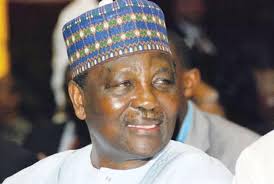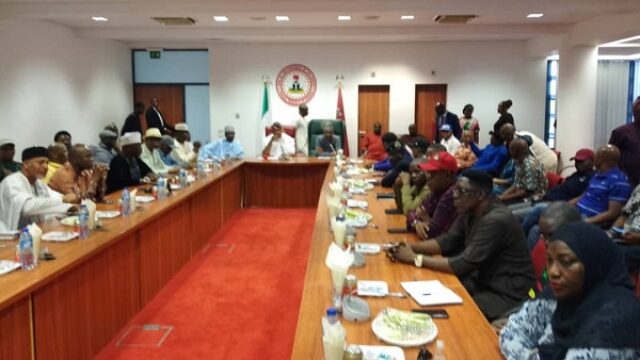***Advices Tinubu to carry Nigerians along in driving his policy objectives
***Describes Author of Tree of Life as someone who went overboard to achieve her dreams
The CEO of Telesource GmbH, an IT company based in Frankfurt, Germany, Dominic Akahan has advised the Nigerian Government to be less aggressive in its approach to policy formulation and execution as it may be counter productive like the Fuel subsidy removal has proven to be.
President Bola Tinubu at inauguration on May 29th, 2023 as President of the Federal Republic of Nigeria had announced the removal of Fuel subsidy which triggered inflation that has visited untold hardship on Nigerians.
He spoke at the a book Launch with the Title, The Tree of Life, My voyage of Bravery, Development and Acceptance, authored by Stephanie Seember Mwese Zape-Kurschat, over the weekend in Abuja.
Explaining the aftermath of the inauguration day declaration that Fuel subsidy is removed, Akahan said
“When the President was sworn in, we expected that this oil subsidy removal would take a gradual step but all of a sudden, we woke up and heard that the fuel price has increased to whatever, and oil subsidy has been removed of course there will be inflation.
“That is a trigger for inflation, and indeed it triggered inflation. Nigerians today are also the architect of their problems because when such things happen, they make things even worse for themselves.
“You go to the market today, a market woman that doesn’t even import items has increased her prices in geometric pattern, the taxi man on the street had blown the price up, which is understandable.
“Those are the things we were looking at in leadership. That is why the previous leaders did not do that aggressively. Mr. President is on a good road.
However, he advised that whatever the case may be, Tinubu should also think of human capital development, and develop human capital, just like the Europeans and the Americans do.
According to him, Nigerians are easy to manage because they don’t really protest.
“Abroad, they would have hit the streets, burned down everything. Try that in Paris. That’s what they would do. But we thank God that we are patient people. And patience goes a long way.
“So this is not a criticism on the government. It is just a little advice from my own perspective that some things should be done step by step and involve people, educate people, let them know where we are going, because as of today, some people don’t know why the subsidy was removed and where is Mr. President going.
He said there is need to educate the populace because “If you let people know where you are going, they will align with you. Because this is like a change, transformation. If you transform a scenario and people do not align with your concept, then, the transformation is dead on arrival.
On the Book Launch he said the author is his adopted daughter whom he took to Germany for treatment and has overcome her challenges.
“I followed her milestones, her obstacles, and how she was able to manage some of the things that she encountered in life. And then her illness.
“Stephanie is somebody I brought to Germany and I had a reason for bringing her to Germany and the reason is today justified.
“As you see a beautiful girl walking around here. She has encountered various obstacles in life but had managed to come out successfully.

“Stephanie is somebody that will go overboard to achieve her objectives. And I have always cherished that in her, because looking at where she came from and what she has achieved today, you realize that this is a young girl that has actually crossed so many rivers, turbulent rivers.
“And She swam through these rivers and wasn’t eaten by a shark. So whatever the case may be, I cherish her a lot. I admire her a lot as my daughter.
“I don’t have a daughter, so she’s adopted as a daughter.
Akahan said he has assisted over
200 Nigerians from this country to Germany for treatments adding that when her issue came up, and he was approached that he should help, he didn’t waste any time.
Stephanie said she had been through four brain surgeries that all had 50-50 chance but God delivered her from them all as she has been healed and hence decided to put down her experience for others to learn.
The 310 paged book unfolds the remarkable journey of a young Orphan girl who hails from Gboko LGA in Benue State.
Within the lines, her life story unravels, chronicling her part from childhood to adulthood, navigating through personal trials, triumphs and the pursuit of her dreams.




